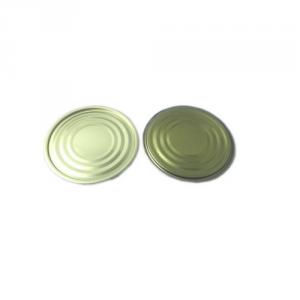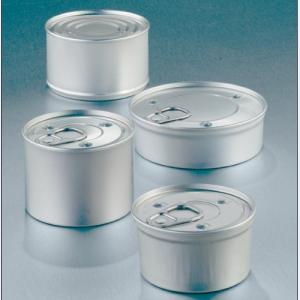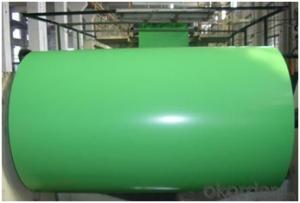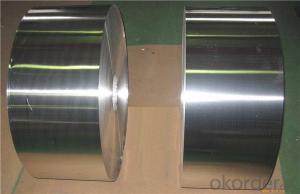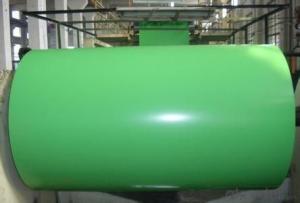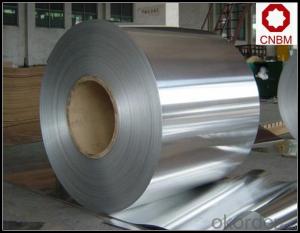Can End/Tab Stock
- Loading Port:
- China Main Port
- Payment Terms:
- TT or L/C
- Min Order Qty:
- 10 Tons m.t.
- Supply Capability:
- 8000 Tons Per Month m.t./month
OKorder Service Pledge
OKorder Financial Service
You Might Also Like
1.General Information of Can End/Tab Stock
CAN END/TAB STOCK is between 0.235 mm and 0.355mm in thickness with clear paint or golden color paint. Paint is usually from VALSPAR OR PPG and lubrication can be done.
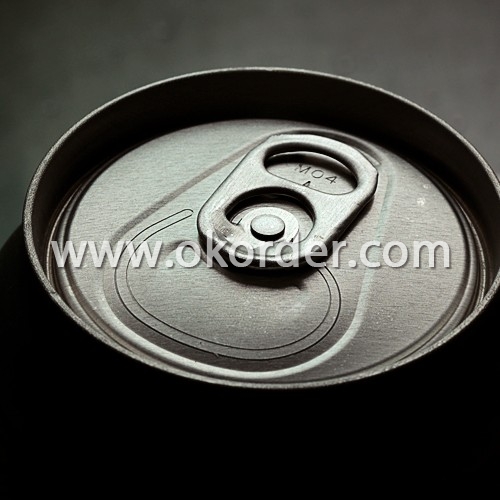
2.Features of Can End/Tab Stock:
CNBM produces aluminum coils which meets the highest standards in its own mill while save the cost. Our strong quality control term bring you the most-qualified products. And with state-of-the-art equipment, and the state owned company background, we have to say, you will understand why there are so many company choose CNBM to be their supplier. CNBM aluminum complying with YS/T 429-2000(Chinese Industry Standard),GB/T 3880,EN485,ASTM B209.
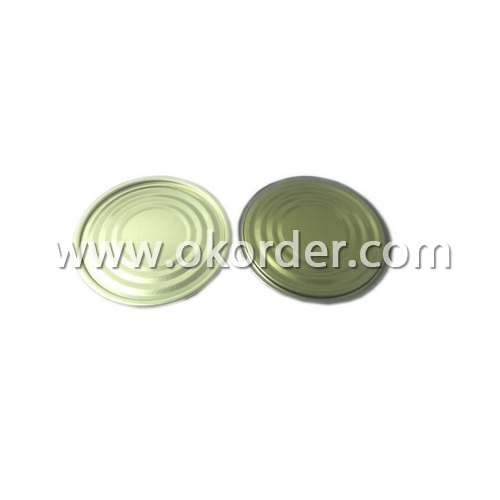
3.The main producing procedure of Can End/Tab Stock:
Rolling--Annealing--Slitting—Rinsing—Coating—Baking---Coiling
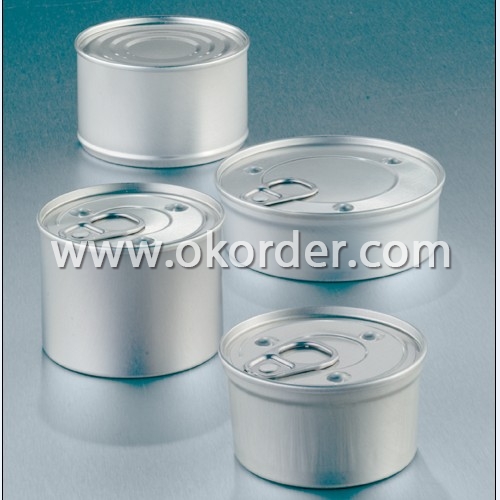
4. Specification of Can End/Tab Stock
Alloy | AA5052, AA5182, AA3004, AA3104 |
Temper: | H19,H48 |
Thickness: | 0.235-0.355mm |
Width: | 700mm- 1800mm |
Standard: | GB/T17748-1999, ASTM, ISO, EU standard |
Special Specification is available on customer’s requirement | |
- Q:How do aluminum coils perform in extreme temperature conditions?
- Aluminum coils generally perform well in extreme temperature conditions due to their high thermal conductivity and low thermal expansion. They can efficiently transfer heat and are resistant to warping or cracking, making them suitable for various applications in extreme temperatures.
- Q:Are aluminum coils suitable for architectural cladding applications?
- Aluminum coils, indeed, are well-suited for architectural cladding applications. The versatility of aluminum as a material offers a multitude of advantages when it comes to cladding purposes. To begin with, aluminum's lightweight properties make it effortlessly manageable and installable. This not only lessens the burden on the building structure but also simplifies the construction process as a whole. Moreover, aluminum exhibits exceptional durability and resistance against corrosion. Consequently, it becomes an ideal selection for exterior applications, withstanding even the harshest of weather conditions while preserving its appearance over time. In addition to its durability, aluminum coils possess the ability to be fabricated into various shapes and sizes, allowing for a flexible design approach. They can be effortlessly formed, cut, and molded to precisely meet the specific requirements of any given building project. Architects and designers also benefit from the wide range of finishes and colors available in aluminum. This provides them with ample options to achieve the desired aesthetic for the cladding. Furthermore, opting for aluminum aligns with the growing emphasis on environmentally friendly construction practices, as it is entirely recyclable. Overall, the myriad of advantages, including versatility, durability, lightweight nature, aesthetic options, and sustainability, make aluminum coils a fitting choice for architectural cladding applications.
- Q:Can aluminum coils be used for signage and display applications?
- Signage and display applications can utilize aluminum coils effectively. Aluminum, being a versatile and lightweight material, finds extensive usage in the signage industry. The ability to easily shape and resize aluminum coils makes them suitable for various signage and display purposes. When it comes to outdoor signs, such as billboards, building signs, and traffic signs, aluminum coils are commonly employed due to their exceptional resistance to weather and durability. They can endure harsh weather conditions like rain, snow, and UV exposure without undergoing rusting or fading. This quality makes them a reliable option for signage with long-lasting effects. Moreover, aluminum coils can be coated with various finishes like paint or powder coating to enhance their appearance and provide added protection against corrosion. This enables customization and branding opportunities, making aluminum coils appropriate for both functional and decorative signage. Regarding display applications, aluminum coils can be utilized to create exhibition stands, trade show displays, retail displays, and other promotional materials. Their lightweight nature facilitates easy transport, assembly, and disassembly, making them advantageous for portable displays. Additionally, aluminum coils can be easily printed on or laminated, enabling the incorporation of graphics and visuals to capture attention and convey messages effectively. All in all, aluminum coils are a versatile and resilient material suitable for a wide array of signage and display applications. Their ability to withstand weather, customizable finishes, and lightweight properties contribute to their popularity in the industry.
- Q:and alsoHow many grams of the decay product will have formed after 8 days go by?The decay product is the new isotope created as a result of the positron decay of aluminum-24.In class my teacher didn't explain this completely but there's a question on the homework that me and even my mom (another teacher) can't find the answer to.
- so it 6000/ (2*8*24*60*60) 0.00434027778 grams have you heard of the internet an unless your mom is a chem teacher it doesnt mean much
- Q:Can aluminum coils be used in the production of aluminum foil?
- Yes, aluminum coils can be used in the production of aluminum foil. Aluminum coils are typically made by rolling ingots of aluminum between heavy rollers to create thin, flat sheets. These coils can then be further processed to create aluminum foil. The coils are unwound and fed through a series of rolling mills which gradually reduce the thickness of the metal until the desired thickness for aluminum foil is achieved. The foil is then cut into sheets or rolls for packaging and distribution. Aluminum coils provide a cost-effective and efficient way to produce large quantities of aluminum foil.
- Q:Are aluminum coils suitable for low-maintenance applications?
- Yes, aluminum coils are suitable for low-maintenance applications. Aluminum is known for its durability and resistance to corrosion, making it an excellent choice for applications that require minimal upkeep. Unlike other materials, such as steel, aluminum coils do not rust or require regular painting to maintain their appearance. Additionally, aluminum is lightweight, which can make installation and handling easier, especially in low-maintenance applications where frequent maintenance may not be feasible or desirable. Overall, aluminum coils offer a reliable and low-maintenance solution for various applications.
- Q:Can aluminum coils be used in high-pressure or high-temperature environments?
- High-pressure or high-temperature environments typically do not recommend the use of aluminum coils. Although aluminum is known for its high thermal conductivity and resistance to corrosion, it has limitations when exposed to extreme conditions. When it comes to high-pressure environments, aluminum coils may lack the necessary strength and durability required to withstand the forces exerted by pressurized systems. Aluminum has a lower tensile strength compared to metals like steel or titanium, making it more vulnerable to deformation or failure under high pressure. Therefore, it is generally advisable to use materials with higher strength and pressure ratings in such situations. Likewise, aluminum coils have a relatively low melting point compared to metals such as steel or copper. Aluminum's melting point is approximately 660 degrees Celsius (1220 degrees Fahrenheit), which makes it susceptible to damage or failure in high-temperature environments. For applications where the temperature exceeds the melting point of aluminum, it is recommended to use materials with higher temperature resistance. However, it is important to note that there are specialized alloys and coatings available that can enhance the high-temperature and high-pressure capabilities of aluminum. These modifications can improve its strength, heat resistance, and corrosion resistance, making it suitable for certain applications in extreme conditions. Nevertheless, it is crucial to carefully consider the specific requirements and limitations of the intended environment before deciding to use aluminum coils. Seeking advice from experts and considering alternative materials may be necessary to ensure the safety and efficiency of the system.
- Q:Are there any limitations to using aluminum coils?
- Yes, there are certain limitations to using aluminum coils. One limitation is that aluminum has a lower tensile strength compared to other metals like steel, making it more prone to damage or deformation under heavy loads or impacts. Additionally, aluminum coils can be susceptible to corrosion if not properly protected or coated. Finally, aluminum coils may not be suitable for applications that require high electrical conductivity, as aluminum has a lower conductivity compared to copper.
- Q:Can aluminum coils be used in the production of kitchen utensils?
- Yes, aluminum coils can be used in the production of kitchen utensils. Aluminum is a popular choice for kitchen utensils due to its lightweight, durable, and heat-conducting properties. Aluminum coils can be easily shaped and molded into various utensil designs such as pots, pans, baking trays, and even cutlery. Additionally, aluminum is resistant to corrosion, making it suitable for contact with food and liquids. It is important to note that aluminum utensils may require a non-stick coating or a protective layer to prevent the reaction between aluminum and certain acidic or alkaline foods. Overall, aluminum coils are widely used in the production of kitchen utensils due to their versatility and practicality.
- Q:We are working on a new aluminum fixture. It is basically an aluminum spine with many 6061-T6 pins sticking out. Currently we drill the holes inside the spine and hammer the 5/32 6061-T6 pins inside. Is there anyway to cast aluminum with many 6061-T6 pins embedded (they will stick out after the casting)?
- this may be a splash extra complicated yet promises extra advantageous element than sand casting. lost wax casting investment or ceramic shell you'll be able to make molds to form the wax yet investment or ceramic shell are destroyed interior the approach
1. Manufacturer Overview |
|
|---|---|
| Location | Henan, China |
| Year Established | 1996 |
| Annual Output Value | Above US$200 Million |
| Main Markets | Mid East;Eastern Europe;North America |
| Company Certifications | ISO 9001:2000;ISO 14001:2004;OHSAS 18001 |
2. Manufacturer Certificates |
|
|---|---|
| a) Certification Name | |
| Range | |
| Reference | |
| Validity Period | |
3. Manufacturer Capability |
|
|---|---|
| a)Trade Capacity | |
| Nearest Port | Shanghai |
| Export Percentage | 30%-50% |
| No.of Employees in Trade Department | 21-50 People |
| Language Spoken: | English;Chinese |
| b)Factory Information | |
| Factory Size: | Above 100,000 square meters |
| No. of Production Lines | Above 10 |
| Contract Manufacturing | OEM Service Offered;Design Service Offered |
| Product Price Range | Average |
Send your message to us
Can End/Tab Stock
- Loading Port:
- China Main Port
- Payment Terms:
- TT or L/C
- Min Order Qty:
- 10 Tons m.t.
- Supply Capability:
- 8000 Tons Per Month m.t./month
OKorder Service Pledge
OKorder Financial Service
Similar products
New products
Hot products
Hot Searches
Related keywords

